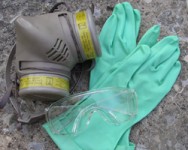2023 DEC Special Permit Training -- Orleans County
Event Details
Date
April 12, 2023
Time
English and Spanish: 8:00 am check-in, 8:30 am - 12:00 pm
Location
CCE Orleans County
12690 Rt 31
Albion, NY 14411
Host
Lake Ontario Fruit Program and Cornell Vegetable Program
Christy Hoepting
585-721-6953
email Christy Hoepting
Event Registration

Special Permit Training is back in-person this year. Special Permits (SP) will relieve the certified pesticide applicator from "on-site within voice contact" supervision of non-certified pesticide applicators when they are handling federally-restricted-use pesticides for which they hold a Special Permit. The 8 specific labels covered:
- Endigo ZCX
- Warrior II with Zeon Technology
- Agri-Mek SC
- Besiege
- Leverage 360
- Danitol 2.4EC
- Mustang Maxx
- Lannate LV
- (no Gramoxone again this year and Lorsban is no longer registered)
All pesticide handlers need to complete the training and pass the exam!
This year, all pesticide handlers are required to complete the 3-hour in person training and pass the exam given at the training (with 70% correct or higher). Certified Supervisors are required to attend the first 30 minutes of training.
New York DEC notes that the Special Permit process is intended for farm workers with English language skills that are not adequate to pass the DEC private applicators exam. All others are encouraged to apply for their private applicators license via taking the certification exam.
Workers in need of special permits vs general pesticide training will need to be identified. Workers requiring general pesticide training/Agricultural Worker Protection Standard Handler training who do not need Special Permits are welcome to take the class; they will not be tested and will receive a course participation certificate.
English and Spanish sessions are offered concurrently in Orleans County:
- English or Spanish session: 8:00 am check-in, 8:30 am - 12:00 pm
Cost
COST if pre-register by April 4, 2023: $30 per applicator/handler.
COST if pre-register April 5 - 7, 2023: $50 per applicator/handler. Registrations will not be accepted after April 7th.
Questions about registration? Contact Natalie Mrzywka at 585-798-4265 x26 or email Natalie.
Register
REGISTER on the Lake Ontario Fruit Program's website.
Questions??
For more information about Special Permit Training, please contact Christy Hoepting or Janet Van Zoeren.

Upcoming Events
Orleans Regional Winter Vegetable Meeting
February 9, 2026
Albion, NY
Topics include: Breeding and evaluating tomatoes to control disease and improve yield, jar testing and ensuring spray water quality, breaking down organic matter, FSMA updates and Q&A with Ag & Markets, and industry updates. Includes hands-on learning, coffee break, and sponsor booths.
DEC credits available: 1.0 in CORE plus 0.5 in 1a, 10 or 23
African Eggplant Participatory Breeding Kick-Off
March 5, 2026
Join us to learn about the Cornell African Eggplant Research Project and learn how you can participate! African eggplant, also known as Bitterball, Garden Egg, Kittley and other names, is an important crop for many members of our community with heritage from regions such as sub-Saharan Africa, Southeast Asia, and Brazil. Since 2024, the Cornell African Eggplant Research Project has been collaborating with growers and community partners across New York to develop high-quality varieties adapted to the Northeast U.S. In this meeting, we will share information about growing and preparing African eggplant, highlight our research to date, and invite partners to collaborate with us in our 2026 participatory breeding and variety selection efforts.
COST: FREE! You must pre-register to receive the Zoom link.
Managing the Invasive Swede Midge Webinar
March 6, 2026
Swede midge is an invasive fly that causes serious economic losses to brassica crops. Due to its small size and hidden feeding habits, swede midge is often called an "invisible pest" and damage may be misdiagnosed. In this webinar, we will review the swede midge life cycle and crop damage symptoms, current management recommendations, new research findings, and highlights from on-farm case studies with a focus on organic management.
1.75 DEC pesticide recertification credits in categories 1a, 10, and 23.


































